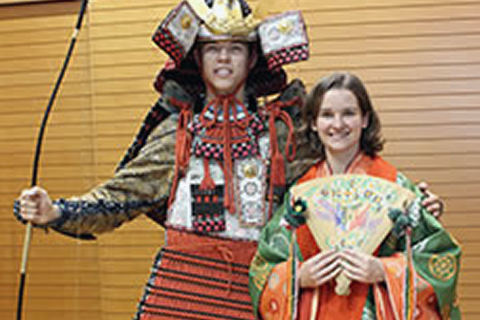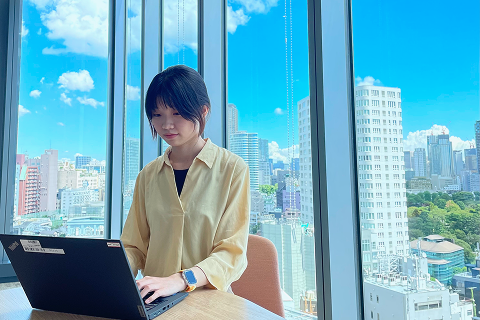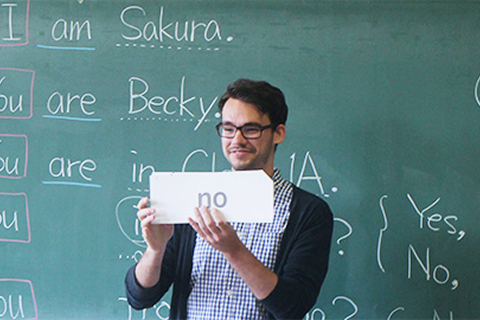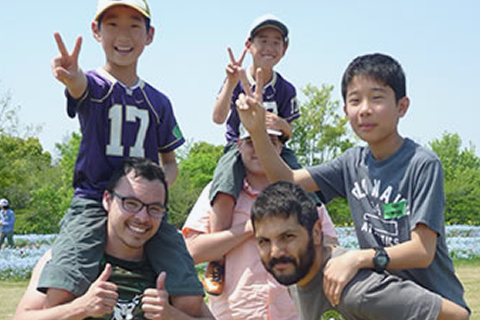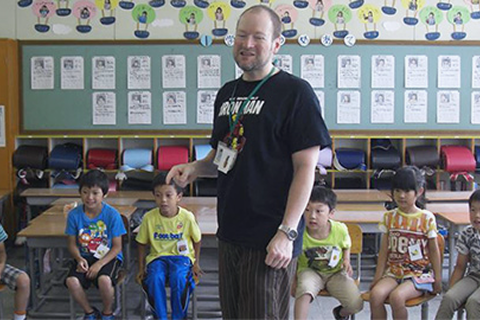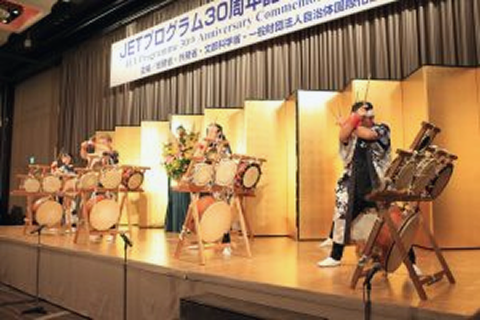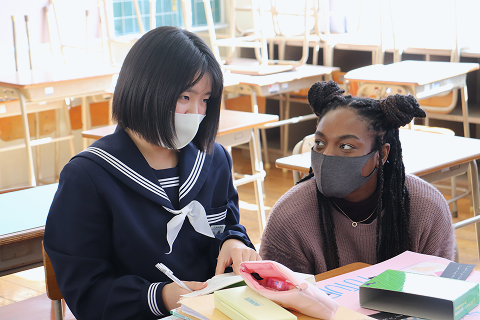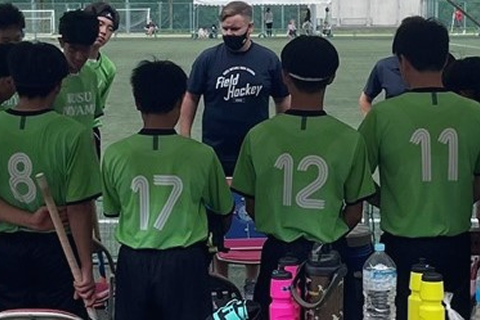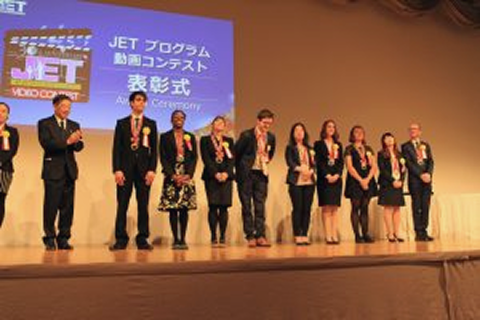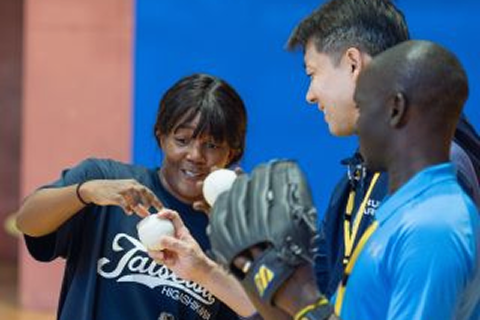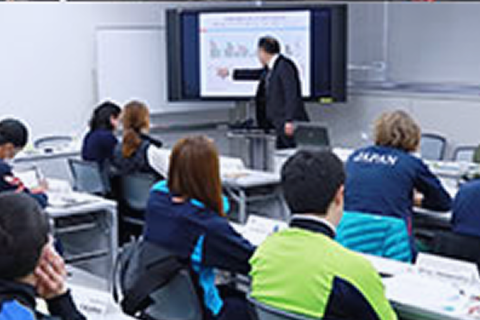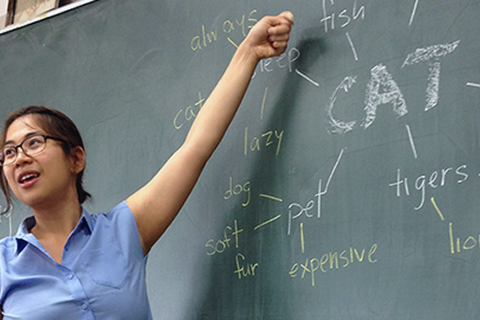
Participating in the JET Programme is an irreplaceable experience.
JET participants are placed in contracting organisations all across Japan. These locations vary from vibrant, neon cities to remote mountain villages of just a few hundred inhabitants. JET participants live and work in all of the different climate zones that Japan has to offer, be it the cool summers and pristine winters of the northern shores of Hokkaido or the tropical islands of Okinawa.
The lives and individual working situations of ALTs, CIRs, and SEAs are very diverse.
In Japan, modern elements such as cutting-edge technology and design coexist with traditional lifestyles in which local people live in deep connection with nature. JET participants bring their own diverse perspectives into play, sharing their cultural backgrounds with local communities. The JET Programme is a crossroads at which the lives of over 5,000 participants intersect with those of the people of more than 1,000 Japanese municipalities.
The experience of being a JET participant is truly invaluable. From the connections you build in your workplace and local Japanese community to the global network of JET alumni—which now includes more than 70,000 people—there is so much to gain. Life on the JET Programme can lead to personal growth and new discoveries through the people you meet and experiences you have.
On this page, we present testimonials and in depth perspectives written by current and former JET participants. Reading them, you will know a bit more about the possibilities waiting for you when you start your own JET life.
Testimonials
Date:
Category:
JET Video Contest


The JET Programme Video Contest aims to uncover the hidden charms of regions across Japan and share Japan’s appeal with the world to contribute to the revitalisation of local communities.
2024 JET Video Contest
In 2023 CLAIR announced the much-anticipated comeback of the JET Video Contest, marking its revival after a hiatus of seven years. This time, both JET Programme Alumni and current participants were invited to craft their own short videos, centered around the three specified themes below.
いちごいちえ(Ichigo Ichie)
一期一会
‘Once-in-a-lifetime chance’
いっしょうけんめい(Isshōkenmei)
一生懸命
‘Trying as hard as one can’
かちょうふうげつ(Kachōfūgetsu)
花鳥風月
‘The beauties of nature’
With over 200 incredible entries, a panel of professional judges selected the top 13 videos. Check out the winning videos below!
Grand Prizes
1
Gold Award
The Four Seasons of Tohoku
2
Silver Award
A Once-in-a-Lifetime Taste of Japan
2
Silver Award
A New Kind of Awareness – 新たなる気づき
Awards of Excellence
Art Direction Award
On Miyako, In Nature
Creativity Award
300 yen for a once in a lifetime opportunity.
Most Unique Award
Sakura X Poui: A Book Inspired by Cherry Blossoms
Best Narrative Award
Hiking the Kumano Kodo
Most Stylish Award
A Story
Most Vibrant Award
Colors of Kochi
Special Acknowledgement Awards
Tashirojima Cat Island Tier List
The Power of Isshokenmei: Lessons from Nagaoka
Abare: Light & Delirium
Most Liked Award
Higashiagatsuma: glad I came
To all creators whose videos did not make it through the final screening process, we at CLAIR deeply appreciate the time and effort you dedicated to your creations. We want to express our sincere gratitude for your continued appreciation of Japan and support for the JET Programme community. The dedication and collaboration of the JET community are invaluable in facilitating opportunities such as this, and we hope we can continue to rely on your support in the future.
All submitted videos can be viewed from the link below.
Past Issues
JET Programme 30th Anniversary
Last Updated: 25 June 2021
About the JET Programme Video Contest 2017
Last Updated: 13 March 2018
Last Updated: 23 March 2017
Last Updated: 21 February 2017
JET Programme 30th Anniversary Photo Contest
Last Updated: 11 October 2016
2017 JET Programme Video Contest
Last Updated: 5 October 2016
JET Arigato Campaign〜How to Submit
Last Updated: 12 May 2016
JET-related articles from CLAIR's official publication: CLAIR Forum

Letters from JETs ~JET Kara no Tegami~
Current and former JET participants are featured in the ‘Letters from JETs’ section of the monthly CLAIR Forum magazine. Here, you can read articles about their activities and experiences on the JET Programme.









